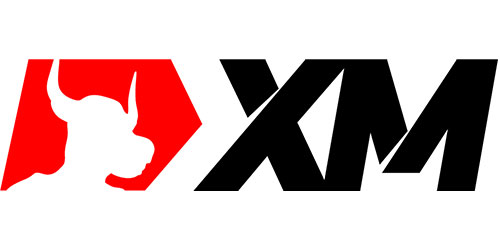
Simply defined, a cryptocurrency is a virtual or digital currency that has been secured by cryptography. This makes it impossible to counterfeit or double-spend digital assets.
Top 10 Forex Brokers Broker Rating Regulators Min Deposit Leverage Website Top 10 Forex Brokers Broker Rating Min Deposit Leverage
How do Cryptocurrencies Work?
Many cryptocurrencies are decentralized networks that are developed on blockchain technology, featuring a distributed ledger that is enforced by networks of computers.
Cryptocurrencies are systems that allow for users to make secure payments online, denominated in terms of virtual “tokens” or coins, which are represented by ledger entries. Each cryptocurrency is a computer file that is saved in a digital “wallet.”
This file can be accessed through smartphone or desktop apps or any other internet-enabled devices. These coins are transferable, fractional, or whole coins from one person to another through the blockchain.
Not all cryptocurrencies work in the same way, but most crypto coins use some type of blockchain technology through which transactions are carried out.
This means that many cryptocurrency coins are the equivalent of using PayPal or a debit card, except when paying in crypto, the number on the screen shows crypto coins instead of fiat currencies.
When a transaction is initiated in cryptocurrency, the person who creates the transaction will use their wallet software to transfer balances from a public address to another.
To transfer funds, the person must use their unique private key to access their wallet account. The transactions between persons are encrypted, and they are broadcasted to the cryptocurrency's blockchain, queued up, and added to the public ledger.
Transactions are recorded on this public ledger through “mining,” which involves different computers or nodes verifying the details of the transaction, adding the transaction to a block on the blockchain.
The transaction amounts are public, but who sent the transition is kept confidential and anonymous, another reason cryptocurrency transactions are secure.
Every transaction leads to a unique set of keys, and the owner of the keys owns the amount of cryptocurrency, which is associated with the keys, the same way that a person who owns a bank account will own the money in it.
The Most Common Types of Cryptocurrencies
In 2023, there are more than 12,000 different cryptocurrencies, but there are some who are more popular than others, including:
- Bitcoin (BTC)
- Ethereum (ETH)
- Litecoin (LTC)
- Bitcoin Cash (BCH)
- Tether (USDT)
1. Bitcoin (BTC)
Bitcoin is the most popular cryptocurrency because it was the first digital asset that was ever created, leading to the age of cryptocurrency. Bitcoin is one of the most valuable cryptocurrencies because of its widespread use as a store of value, its widespread adoption and acceptance, and its limited supply.
Bitcoin currently trades for $49,475 [2021/09/24] and has a 24-hour trading volume of $40,023,916,163.
2. Ethereum (ETH)
Ethereum is the second-most popular cryptocurrency in the world because of its unique blockchain. The Ethereum blockchain allows for smart contracts and decentralized applications (DApps) to be created.
Ethereum aims to create a decentralized suite of financial products that can be accessed by anyone in the world and that can be used across industries.
Ethereum is currently trading at $2,998.85 [2021/09/24] and has a 24-hour trading volume of $25,886,415,222.
3. Litecoin (LTC)
Litecoin was launched in 2011, and it was one of the first cryptocurrencies that followed Bitcoin's footsteps. Litecoin is an open-source global payment network that is not controlled by any central authority.
Litecoin uses a “Scrypt” consensus method to verify transactions and add new blocks to the blockchain. More merchants are starting to accept LTC payments, and as of September, Litecoin has a market capitalization of $4 billion.
Litecoin is currently trading at $150.42 [2021/09/24] and the 24-hour trading volume is $3,083,963,359.
4. Bitcoin Cash (BCH)
Bitcoin Cash is another common cryptocurrency as an altcoin because it was one of the earliest and most successful hard forks of Bitcoin. As opposed to Bitcoin, Bitcoin Cash is well-known for its scalability, increasing the block size, which means that more transactions can be stored on a block, increasing the transaction speed.
Bitcoin Cash currently trades at $551.43 [2021/09/24] and has a 24-hour trading volume of $6,176,817,194.
5. Tether (USDT)
Tether is one of the first and most popular stablecoins that pegs its market value to the United States dollar. By doing this, market volatility is reduced as it smooths out price fluctuations.
Because Tether is tied to USD, it makes it easier to carry out transfers from cryptocurrencies to US dollars quickly than converting it to normal currency.
Tether trades at $1 [2021/09/24] and there is a 24-hour trading volume of $79,187,606,089.
What are Cryptocurrencies Used For?
Not all cryptocurrencies are designed to pay for services or goods, like Bitcoin, amongst others. Different cryptocurrencies serve several other purposes.
Overall, cryptocurrencies are used for the following:
- To carry out low-cost money transfers.
- Cryptocurrencies can be used to earn interest when users participate in yield farming.
- They can be a censorship-resistant alternative store of wealth.
- Cryptocurrencies can be used to invest in early-stage start-ups or initial coin offerings (ICOs).
- They can be used to send non-cash remittances.
- To pay content creators on social media platforms.
- There are cryptocurrency protocols that allow users to rent out hard-drive space to the cloud, earning them fees and interest.
- Cryptocurrencies can pay for flights and other modes of transport.
- It can be used to autonomize several processes in the financial, healthcare, supply chain, and other industries.
- It can be used for recordkeeping.
- It can be used to power computers.
- Cryptocurrencies can be used to create digital identities in a decentralized manner.
What are the Differences Between Real Money and Cryptocurrencies?
The differences between real money and cryptocurrencies are as follows:
- Real money is issued and controlled by a central bank and governments, but cryptocurrencies are digital assets that are not controlled by any singular body or authority. People can buy, sell, and exchange cryptocurrencies as they wish.
- Cryptocurrencies cannot be physically held and are computer files kept in electronic wallets, whereas real money is electronically represented in a bank account, but paper money can be drawn and used for payments.
- There are certain cryptocurrencies like Bitcoin that have limited supplies. Once all the coins are released in circulation, no others will ever be created. Real money is generated by banks without any definite limit on the supply.
- Cryptocurrency transactions are transparent and can be viewed by anyone, but the information on the sender/receiver is anonymous. Transactions with real money cannot be anonymous and can easily be traced.
- Transactions in cryptocurrency cannot be reversed. Once they are paid, the funds cannot be retrieved unless the receiver sends them back to the original sender. However, real money transactions can be reversed.
- Cryptocurrency transactions have lower costs, whereas real money transactions have several fees.
- Cryptocurrency can be used as a hedge against inflation while real money loses its value because of inflation.
What is the Cheapest Cryptocurrency?
There are top cryptocurrencies that attract investors who want to diversify their portfolios. There are also several cheap cryptocurrencies that have become more popular, including:
- VeChain (VET) – $0.11
- Cardano (ADA) – $2.05
- Dogecoin (DOGE) – $0.20
- Uniswap (UNI) – $27.02
- Chainlink (LINK) – $27.40
- Polygon (MATIC) – $1.52
- EOS (EOS) – $4.76
- IOTA (MIOTA) – $1.37
- BitTorrent (BTT) – $0.004
- Ethereum Classic (ETC) – $51.20
1. VeChain (VET)
VET currently trades at $0.11 because it is in a price vacuum without any support. To improve short-term portfolio stability and to ensure the crypto of a more lucrative future, the digital asset must liquidate weak holders to bring price structure clarity.
2. Cardano (ADA)
ADA currently trades at $2.05 because of recent cryptocurrency market trends and because it is still recovering from the crash of altcoins in 2018. Cardano still has poor public relations, confusing policies, and a lot of unfinished projects.
3. Dogecoin (DOGE)
DOGE currently trades at $0.20, and it is so cheap because the coin is vulnerable to inflation. Many social media trends influence the price of DOGE along with the backing of many prominent persons such as Elon Musk.
4. Uniswap (UNI)
UNI currently trades at $27.02, and it is still cheap because there are many developments in progress, such as the addition of margin and leveraged trading to its platform, leading market analysts to believe its value will increase rapidly.
5. Chainlink (LINK)
LINK currently trades at $27.40 because it is only the 14th largest cryptocurrency coin on the market, and there are still many developments in decentralized finance (DeFi) and smart contracts.
6. Polygon (MATIC)
MATIC currently trades at $1.52 and is not experiencing high trading volumes as other cryptocurrencies, with a lot of developments ongoing on its platform.
7. EOS (EOS)
EOS is currently trading at $4.76 and is one of the cheapest coins, but it is set to increase rapidly soon. There is no specific reason behind its low price other than the developments surrounding the coin and increases in its widespread adoption.
8. IOTA (MIOTA)
MIOTA is currently trading at $1.37 because of its complex technology and recent issues faced with the platform.
9. BitTorrent (BTT)
BTT trades at $0.004 because its supply outweighs demand, with a coin cap of 990 trillion BTT, making the price inflationary and with price predictions that it will remain well below $0.05 for the next few years.
10. Ethereum Classic (ETC) – $51.20
ETC trades at $51.20, and even though it is on the same protocol as Ethereum, there are many differences between the cryptocurrencies, and ETH still overshadows ETC.
What is the Most Expensive Cryptocurrency?
The most expensive cryptocurrencies that are currently selling for more than $20,000 are:
- Bitcoin BEP 2 (BTCB) – $50,275.16
- Bitcoin (BTC) – $49,475.83
- Wrapped Bitcoin (WBTC) – $45,462.09
1. Bitcoin BEP 2 (BTCB) is expensive because it is a token that is supported cent per cent by Bitcoin. BTCB facilitates near-instant transactions in Bitcoin. BTCB is issued by Binance on the Binance Smart Chain (BSC), which is the blockchain for Binance.
2. Binance supports each BTCB token with an equivalent number of BTC in reserve, which is why BTCB's price is so close to that of BTC. The main purpose of BTCB is to bring liquidity to the Binance chain, enabling traders to trade BTCB against BTC.
Bitcoin is expensive because of the following reasons:
- Inflation in combination with the lowering purchase power of the US dollar.
- It was the first cryptocurrency ever created.
- It has a limited supply, and the coin is subject to halving with every 210,000 blocks that are mined.
- Bitcoin is the most accepted cryptocurrency in the world that is being adopted by most businesses and merchants as a form of payment.
- The Bitcoin ledger is immutable and secure.
3. Wrapped Bitcoin (WBTC) is expensive because it is an Ethereum blockchain, or ERC20, token that is backed by BTC, which is why its price is close to that of BTC.
WBTC can be used in smart contracts, and it can be transferred to DApps, by allowing Bitcoin holders access to DeFi and other applications by converting BTC to WBTC, making it compatible with the Ethereum blockchain, on which many DApps, Smart Contracts, and DeFi projects are based.
Which Cryptocurrency is Growing the Fastest?
Cryptocurrencies may have many differences between different tokens and coins, but overall, cryptocurrencies are volatile, which means that prices fluctuate rapidly and dramatically.
Cryptocurrencies grow in value according to the following factors:
- Regulations by government. Many governments are unsure what to do with digital assets. They cannot regulate them, and this increases demand for cryptocurrencies and their growth and value.
- Investment of large amounts of capital. There are many hedge funds and investors who add altcoins to their investment portfolio, pushing the value of cryptocurrencies up.
- Poor US economy. The US economy is still the dominant economy in the world, but there are times when its value dips. Cryptocurrencies have proven themselves as a store of value, the same as gold. Cryptocurrencies grow when stocks and bonds fall when investors search for secure places to put funds.
- Supply and demand is a general principle for the overall economy. Cryptocurrencies that have a decent token supply with a truly little requirement from users and traders will decrease. If there is a limited supply for a certain cryptocurrency, such as Bitcoin, the demand will be high, and the cryptocurrency will keep growing as its supplies diminish.
- Coin utility. Cryptocurrencies that have a lot of useful applications tend to grow more significantly.
- The perceived value of projects. The value of all cryptocurrencies will depend on the viability and the progress of project development. If projects continue to develop, progress, achieve milestones, construct partnerships, and/or make software precious for the market, their value will increase and grow.
- Incentives. Coins that provide people with a reason to buy or hold the coin will show increased growth.
- The team behind the coin. If there is a good development team behind a project, the coin will show consistent growth.
- Target market. All cryptocurrencies have a specific target market, and some are more significant than others.
The following cryptocurrencies are growing the fastest in the market during the past year:
- Cardano (ADA) +2687.5% YTD
- Ethereum (ETH) +721.6% YTD
- Ripple (XRP) +304% YTD
- Bitcoin (BTC) +292% YTD
- Polkadot (DOT) +85.7% YTD
Is Cryptocurrency a Good Investment?
Yes, cryptocurrency can be a good investment based on several different factors.
There are many cryptocurrencies such as Bitcoin and Ethereum that are becoming increasingly popular. The demand for cryptocurrencies is being driven by hype, which is very strong, especially with crypto being adopted around the world.
Cryptocurrency is a volatile investment, but not more so than stock investment or forex trading. The art to perfect when investing in cryptocurrencies is to time the market, open and hold trades for the right amount of time.
Cryptocurrencies and blockchain technology are growing stronger as much-needed infrastructure is being constructed, allowing investors to access institutional-grade custody services.
Cryptocurrency is a good investment based on these factors:
- High growth potential with high potential returns, higher than other asset types.
- Digital assets are not a novelty or niche anymore. They form part of a legitimate asset class.
- They allow investors to diversify their investment portfolios.
- They are a store of value and a haven investment, much like gold.
- Investors can use cryptocurrency as a hedge against inflation.
- The cryptocurrency market is extremely liquid.
What are the Advantages of Cryptocurrencies?
The advantages of cryptocurrencies are:
- Potential for high returns. When comparing the growth rate of other markets with crypto, cryptocurrencies experience much larger growth rates.
- Portfolio diversification. Cryptocurrencies are an alternative hedging instrument that can help with risk management.
- Limited supply, which means that the demand for cryptocurrencies with a coin cap will increase as more coins are released into circulation.
- Protection from debased currencies as well as protection against inflation. Fiat currencies are plagued by a loss of purchase power and the inherent risk of inflation, something that does not affect cryptocurrencies.
- Growing acceptance and usage. Some more businesses and merchants accept payments in crypto. There is also an increase in the number of electronic or digital wallets developed in the past few years, with an increase in investors.
What are the Disadvantages of Cryptocurrencies?
The disadvantages of cryptocurrencies must not be ignored, and they include the following:
- High volatility and the potential for significant loss. The cryptocurrency market is extremely volatile because of rapid and extreme price fluctuations due to several factors. While there is great potential for profits when speculating the market direction correctly, the market can turn quickly and move in the opposite direction.
- There are many correlations with other markets, such as the stock market. There have been many instances where declines in the stock market and stock exchanges have caused significant drops in the value of cryptocurrencies.
- There are a lot of scams in circulation, with many illegitimate fraudulent companies that pretend to be legitimate exchanges. It is becoming increasingly difficult to tell real exchanges from those who are fake.
- The cryptocurrency market is unregulated, and this can lead to an increase in black market activity.
- There are hacking attempts on cryptocurrency wallets. If a hacker gets into a wallet and steals funds, the investor will not be able to reclaim their funds. If the investor or trader loses their private key, their funds are lost forever.
- Supply is potentially limitless for some cryptocurrencies, and many central banks are exploring the possibility of launching native tokens, something that could take the attention away from other cryptocurrencies that are privately issued.
- Poor store of value and limited acceptance. Bitcoin is becoming more widely accepted, but the process is slow and does not yet include many other cryptocurrencies, which limits users.
Can Cryptocurrencies Be Converted Into Cash?
Yes, cryptocurrencies can be converted into cash. Virtual currency can be exchanged for fiat currencies through a forex broker or a cryptocurrency exchange trading platform.
- A forex broker is a financial services company that facilitates trading activities and connects traders to financial markets. To convert crypto to cash, traders must register with a forex broker that supports the crypto that they have, fund their trading account, and exchange their crypto for fiat currency.
- Cryptocurrency exchange platforms facilitate the trading of crypto-to-crypto and crypto-to-fiat transactions, allowing users to convert their cryptocurrency into cash at much lower trading costs than forex brokers.
Is Money Made from Cryptocurrency Taxable?
Yes, cryptocurrency can be subject to taxes depending on the country and tax laws in that area. Digital assets are considered capital assets like stocks and bonds instead of actual currency.
In the United States, cryptocurrency investors and traders have closely monitored the proposals from the Biden Administration, waiting for additional information reporting requirements for cryptocurrencies and all other digital assets.
There is limited guidance on the federal income tax of crypto assets, but the current proposal requires that brokers report information to the Internal Revenue Service (IRS) regarding crypto assets held in client accounts.
Capital assets can tax whenever they are sold for a profit. When crypto holders purchase goods or services with crypto, and the amount of crypto spent gains in value over what it was purchased for, the spending incurs capital gains taxes.
How Safe is Cryptocurrency?
Cryptocurrency investment, like any other investment, is very risky. However, there is one factor that makes cryptocurrencies safe, and that is cryptography.
The “Crypto” in cryptocurrency refers to cryptography which involves a technique that is used to keep sensitive data, information, and communication safe. The goal of cryptography and encryption is that information is exclusively shared with the original recipient.
Cryptography allows this recipient to understand and process the data while it prevents any other unauthorized third party from accessing the data.
Data is encrypted and decrypted with a combination of complex algorithms and corresponding keys. When the sender encrypts data, the data cannot be decrypted by anyone who does not know the necessary key to decipher it.
Only the recipient has that secret key, and they can use it to access the data in its original, non-encrypted form.
In the case of cryptocurrencies, public-key cryptography is used. If a user sends one BTC to their friend, they use their private key to log into their wallet (this can be a pin or a password). The user's friend provides their public key, which is their wallet address, to the sender, and the user uses this to encrypt the data and execute the transaction.
Once the transaction is complete, the user's friend can use their private key to access the funds in their wallet. During the transaction, both the user and their friend generate a cryptographic has when the transaction is signed.
These hashes combine into a final signature which serves as proof that the transaction has not been tampered with.
This same process is used in blockchain networks when transactions are verified and new blocks are added to the chain.
For a malicious entity or a hacker to break the underlying public-key cryptography technology of blockchain networks, it would require significant computational power that is not currently available, even for some of the largest supercomputers in the world.
How Much Should You Invest in Cryptocurrencies?
Risk management when investing is one of the best ways to protect capital. This can be done by ensuring that the right amount of capital is invested at a time in cryptocurrencies.
However, the rule of thumb is that investors do not invest more than between 1% – 5% of their entire portfolio into cryptocurrency and that they only use disposable income that they can afford to lose.
The reason this is a safe ratio is associated with the volatility of the cryptocurrency market. Traders and investors are urged to invest small amounts of disposable income monthly instead of placing one large amount into the market and on a single coin at once.
In addition, this percentage also ensures that investors keep a diversified portfolio, which is an effective risk management strategy that spreads the risk across different financial markets and instruments, for instance, having investments in forex, stocks, cryptocurrencies, and other markets.
It also means not merely relying on only one coin, such as Bitcoin, but spreading the investment across other coins, including Ethereum, Litecoin, Bitcoin Cash, and others. If one coin performs badly, another may perform well and make up the loss made by the former.
The amount that investors commit to cryptocurrencies will depend on their unique investment plan, objectives, their risk tolerance, willingness to be exposed to risk, financial situation that they are in, and how much they can afford to lose. Some investors can lose thousands, while others can only lose $100 or less.
Is Cryptocurrency Better Than Stocks?
Stock trading has been around for decades, while cryptocurrency investing is still a newer phenomenon that occupies investors' portfolios. Both cryptocurrency and stock investment can be profitable, but they are both unique investments.
The type of investment that suits the investor will depend on their unique investment style and their investment goals, whether long-term growth or short-term gains.
Risk Tolerance
Stock investment is not for everyone because it can be a volatile market fuelled by political and economic circumstances. However, cryptocurrency can be even more volatile, but there is the potential for great profits.
Investment horizon
Stocks are known to be perfect for a long-term investment that allows investors to grow their wealth over years as companies and their shares grow and improve. Cryptocurrency is a short-term investment because of its volatility and susceptibility to price movements and fluctuations that can happen more extremely.
To Get Profit, For How Long Should You Keep the Cryptocurrency?
Cryptocurrencies can be traded over the short term to make smaller, more immediate profits. They can also be invested over the long term for investors to benefit from the increase in prices over extended times.
Many professional investors recommend that with long-term cryptocurrency investment, cryptocurrency should be held between 8 months to a year, especially on major and longer established cryptocurrencies such as Bitcoin, Litecoin, Ethereum, and others. This allows for the investment to mature while guarding against significant volatility and price movements in the market.
When looking to hold cryptocurrencies long-term, it is also advised to invest in more than one and up to ten cryptocurrencies to allow for diversification.
What are the Cryptocurrency Terms You Should Know?
There are many terms that traders and investors must familiarize themselves with within the Cryptocurrency market. These are:
- Blockchain
- Decentralized
- Distributed Ledger Technology (DLT)
- Bitcoin
- Altcoins
- Exchange
- Wallet
Blockchain
A blockchain is a shared, immutable, decentralized ledger where transactions are recorded and where assets can be tracked.
Blockchains contain blocks of information that are verified and subsequently stored, available for anyone to view. Not all cryptocurrencies share the same blockchain. Some have native blockchains, such as Bitcoin, Ethereum, and Litecoin, amongst others.
Decentralized
“Decentralized” is a term that is used to describe a system that is neither controlled nor owned by a single entity such as a central bank, company, or government. The product or service, in this case, the blockchain, is run and maintained through computational power contributed by a global network of users.
Distributed Ledger Technology (DLT)
DLT is a technological infrastructure and a protocol that allows simultaneous access, validation, and the immutable updating of records across a network spread across different entities and/or locations around the world.
DLT allows for information to be stored securely and accurately using cryptography. In addition to its uses in blockchain technology, DLT has the potential to revolutionize the way that institutions, corporations, and governments work by helping with passport and Identity card issuance, recording licenses, land registries, and more.
Bitcoin
Bitcoin is a digital currency and the first cryptocurrency that was ever created. Bitcoin serves as a currency that can be used in peer-to-peer transactions to pay for services and goods.
Altcoins
“Alt” refers to alternative, while “coin” refers to digital currency. Bitcoin is the original cryptocurrency, and all other digital assets are considered alternative coins or digital currency. This is because all other cryptocurrencies follow Bitcoin, and they are considered alternatives.
Exchange
A cryptocurrency Exchange or Exchange Trading Platform is a system that operates based on trading cryptocurrencies for other cryptocurrencies or other assets. The core operation of exchanges is to facilitate the buying and selling of these digital assets.
Wallet
A Cryptocurrency wallet is a software application running on computers and smartphones. Some hardware wallets are storage devices on which private keys can be stored, much like a computer file on a flash disk.
There are two types of Crypto wallets, namely hot and cold wallets. Hot wallets are online wallets connected to the internet, whereas cold wallets are offline and are considered the safest type of wallet.
What is the Best Day to Buy Cryptocurrency?
Many cryptocurrency analysts have identified Monday as the best day to buy digital currencies. There are many averages over week-long spreads of different coins that indicate that the price on digital assets is consistently lower on Sundays and Mondays.
The reason for this is because prices typically peak on Fridays, especially when investors receive funds or their bank transfers take place throughout the week. This means that these investors open positions to buy cryptocurrencies, sending these coins to their peak before the weekend.
Eventually, these investors sell, and this causes the value of the cryptocurrency to drop significantly, creating a steady cycle of selling before the weekend ends and before buying for the week starts again.
These metrics are true, especially for popular cryptocurrencies such as Bitcoin, Ethereum, Litecoin, and other popular cryptocurrencies.
You can buy any cryptocurrency safely from these cryptocurrency platforms.
Table of Contents













